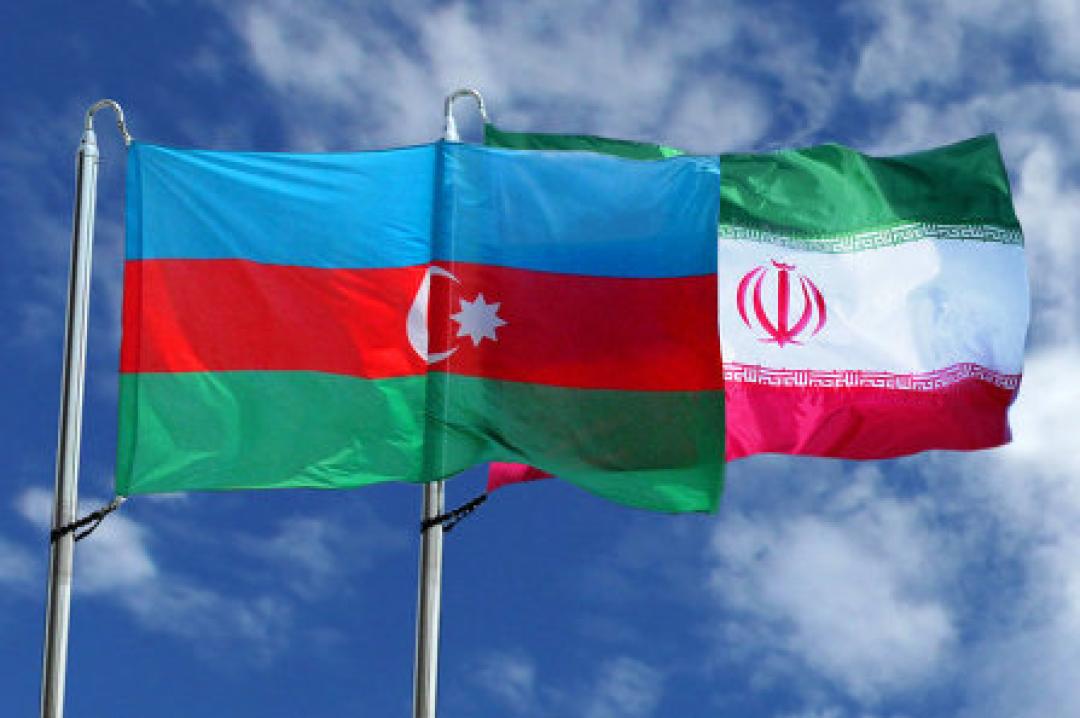
Downward Trajectory in Azerbaijan-Iran Ties

The period of 2020-2022 could be characterized as the return of Iran to the South Caucasus. Military, political, and economic moves towards Armenia and Azerbaijan signal Tehran’s changing perception of the region.
Relations between Azerbaijan and Iran have reached their lowest point in nearly 30 years. The reasons vary, from historical grievances to more immediate circumstances. However, the Second Karabakh War of 2020 stands out as the major driver behind the deteriorating ties.
Azerbaijan’s lightning victory over Armenian forces, which left a more truncated version of the Nagorno-Karabakh enclave, and returned to Azerbaijan’s control nearly all seven territories that were occupied by Armenians since the early 1990s, left the Islamic Republic at unease. Accustomed to a porous border only partially controlled by occupying Armenian forces, for Iran, the restitution of Azerbaijani power represented a major geopolitical shock.
Emboldened by its victory, the lure of heightened nationalistic sentiments seemed to grow popular among both ordinary Azerbaijanis and the country’s political elite. While in the Northern Iran, calls for a greater focus onethnic kinsmen beyond the Aras River have become more commonplace.
For instance, in one of his public statements, Azerbaijani president, Ilham Aliyev pledged to pay attention to Azerbaijanis leaving beyond the national borders. “The young generation of the Turkic world should have the opportunity to study in their mother tongue... 40 million Azerbaijanis living outside Azerbaijan are deprived of these opportunities.”
Azerbaijani-Iranian relations are also deteriorating due to the ongoing media campaign in both countries accusing each other of undermining internal security. In one instance, Baku accused 19 Iranian nationals of illegally entering Nagorno-Karabakh and apprehended them on suspicion of being Iranian spies. The Azerbaijani media accused Iran of supporting Armenia and most of all the Armenian separatists in Karabakh, while Iranian news outlets pedaled the idea of Baku’s dependence on Israel, especially amid the recent reports about Azerbaijan opening an embassy in Tel Aviv. Additionally, Azerbaijani-language networks operating from Iran have continuously broadcast political messages that questioned the Aras River border and openly supported the idea of Azerbaijan returning to Iran.
The January attack on the Azerbaijani embassy in Tehran by a lone assailant claimed the life of a security officer. This further entrenched hostile sentiments in Baku towards Tehran, with diplomatic ties, now endangered and any remnants of trust completely gone.
Adding to Azerbaijan’s concerns, Iran now increasingly favors embattled Armenia. Defeated and unprotected by its major security patron, Russia, Yerevan is bent on diversifying its foreign as well as economic and military ties. This explains the recent burgeoning dynamic in relations with Iran when the latter, in October, opened a consulate in Kapan, a strategically located city in Armenia’s southernmost province of Syunik. Moreover, the latest trip by the Armenian PM to Tehran also produced numerous deals on energy and pledges to grow bilateral trade. The ceremony coincided with Turkish president Recep Tayyip Erdogan’s visit just across the border, into Azerbaijan’s newly returned Zangilan region.
Another underlying message was that Iran would be against any territorial changes to its north. Should Azerbaijan coerce Armenia into opening the route to the Nakhchivan exclave, Iran would not only lose the transit rope it held for Baku but also a land bridge to Georgia and its Black Sea ports. For instance, Hossein Amir-Abdollahian, the foreign minister of the Islamic Republic, announced in one of his interviews that Tehran was determined “not to permit the blockage of its connection route with Armenia.”
Another long-term development negatively perceived by the Islamic Republic is Turkey’s growing footprint in the South Caucasus. Allied with Azerbaijan and using the latter as a springboard for nurturing greater ambitions in the Caspian basin and Central Asia, Turkey is building a veritable Turkic land corridor along Iran’s northern border. In a way, Ankara and Tehran are now engaged in a proxy competition in the South Caucasus.
To preclude a potential change in the map as well as send a warning to Turkey, in October Iran carried out massive military drills near the border with Azerbaijan. Among other elements, exercises included mastery of the Aras River crossing. This was followed by joint Azerbaijani-Turkish exercises in early December, which likewise included the crossing of the Aras River.
The deteriorating ties between the two states are not just an isolated development, but rather represent a long-term trend rooted in bilateral grievances and the diverging geopolitical trajectories Iran and Azerbaijan nowadays pursue. Their paths are likely to further diverge, complicating bilateral relations and leaving little room for finding a basis for more stable ties.
Yet deepening disagreements between Azerbaijan and Iran are not guaranteed to spill over into an open confrontation. The two sides also need each other, as both are interested in the implementation and operation of the International North-South Transport Corridor (INSTC). General security along the Aras River could also be seen as a positive motivator, as could a steady growth in bilateral trade. Indeed, when necessary, both sides seek to tone down tensions. For instance, Azerbaijan’s foreign minister, Jeyhun Bayramov, said on December 27 that despite some tensions in bilateral ties, he wouldn’t portray the situation as critical.
Future bilateral relations will nevertheless be characterized by mutual distrust and a higher pace of competition. Iran will continue to back Armenia, while the Azerbaijani-Turkish alliance will expand in scope. This will resemble a certain proxy competition with Ankara, where Tehran will seek greater alignment with Russia, which likewise loathes Turkish influence, and amid the confrontation with the West, seek closer ties with the Islamic Republic.
Emil Avdaliani is a professor at European University (Georgia)
See Also


Simonyan: “Armenia Should Trade with Turkey and Azerbaijan Instead of Closing Borders”

Mirzoyan Meets US Deputy Assistant Secretary Joshua Huck

Azerbaijani President Holds Talks with UAE and German Business Delegations on Economic Cooperation

Grigoryan Confirms Armenia’s Readiness to Dissolve OSCE Minsk Group Upon Peace Treaty Signing

